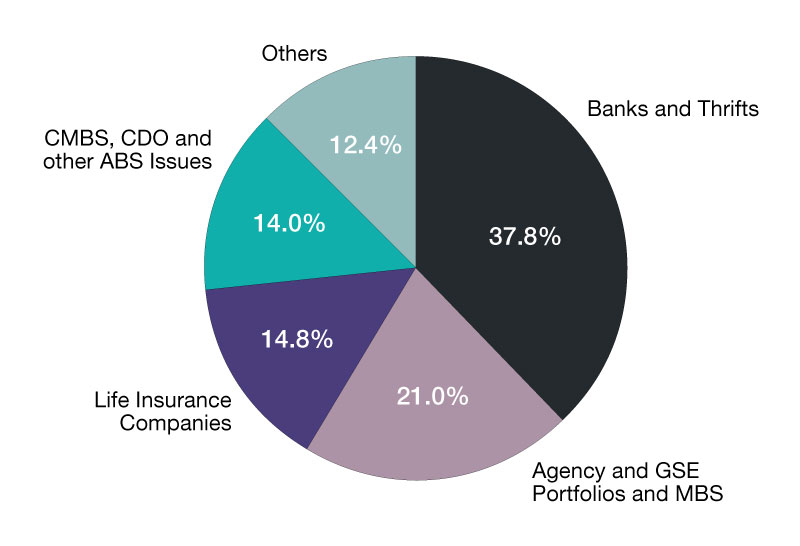[Editor’s note: Read Wenzel’s Part 1 here.]
As the pilot of the eponymous reconnaissance flight to Arras, Saint-Exupéry witnesses first-hand France’s utter defeat at the hands of Germany. The French army, unmotorized and outnumbered, faced the Nazi Blitzkrieg of modern warfare coordinated among concentrated armored divisions, infantry, and a superior air force (96-99). For Saint-Exupéry, the French defeat was inevitable (148-149). The inevitability is reflected in his plane, as the controls freeze at 30,000 feet – a problem that had been identified before the war, but was never resolved for want of individual responsibility (94). “We were living in the blind belly of an administration. An administration is a machine. The more perfect the machine, the more human initiative is eliminated from it… But a machine is not built for creation. It is built for administration. It goes unvaryingly through motions pre-ordained once and for always. And an administration, like a machine, does not create. It carries on. It applies a given penalty to a given breach of rules, a given method to a given aim. An administration is not conceived for the purpose of solving fresh problems” (92-93).
The French army burned villages as it retreated – with no effect on the advancing Nazi army (96). This led to the infamous Exode, as millions of French civilians (including my grandmother, her sisters, and her parents) fled the advancing Nazis, in one of the three largest population movements in Western Europe in the 20th century (117-139). From his vantage point, Saint-Exupéry could write: “I can see from my plane the long swarming highways, that interminable syrup flowing endless on the horizon.” As the refugees move South, the local villages are pushed to capacity: “Southward the most generous hearts are beginning little by little to harden at the sight of this mad invasion which little by little, like a sluggish river of mud, is beginning to suffocate them.” (117). Naturally, the clogged roads contributed to the already limited mobility of the French army.
In the great tension between futility and duty, Saint-Exupéry reflects on the war (surely, some of these reflections simmered during his American exile – but he also finds himself daydreaming at the stick). “I was later to hear foreigners reproach France with the few bridges that were not blown up, the handful of village we did not burn, the men who failed to die. But here on the scene, it is the contrary, it is exactly the contrary, that strikes me so powerfully. It is our desperate struggle against self-evident fact. We know that nothing can do any good, yet we blow up bridges nevertheless, in order to play the game. We burn down real villages, in order to play the game. It is in order to play the game that men die.” (99-100)
Saint-Exupéry – a French officer and a Frenchman – reflects on the meaning of the utter French defeat at the hands of the Blitzkrieg war machine. “Defeat not only splits men off from other men, it creates a split within the individual himself. If those apathetic fugitives do not mourn the fate of a collapsing France it is simply because they are the defeated. It is in the hearts of those men that France has been defeated. To weep for France is already the promise of victory” (146). He laments the defeat: “Tomorrow we of France enter into the night of defeat. May my country still exist when day dawns again. What ought we do to save my country? I do not know. Contradictory things. Our spiritual heritage must be preserved, else our people will be deprived of their genius. Our people must be preserved else our heritage will become lost. For want of a way to reconcile heritage and people in their formulas, logicians will be tempted to sacrifice either the body or the soul. But I want nothing to do with logicians. I want my country to exist both in the flesh and in the spirit when day dawns. Therefore I must bear with all the weight of my love in that direction.” (221-222). Interestingly, for all his love of France, Saint-Exupéry does not fall into the logical fallacy of the Hegelian nation-state; he remains a methodological individualist: “Man is not the same as men. We say nothing essential about the cathedral when we speak of its stones” (242). This conflicted, notably, with Charles de Gaulle’s vision of France as an entity, and its historically inevitable grandeur.
Flight to Arras was, surprisingly, controversial. Stacy Schiff, in her biography of Saint-Exupéry, explains how the book was denounced by both sides, in turns as defeatist, patriotic without party affiliation, insufficiently anti-semite, or fascist (because of Saint-Exupéry’s methodological individualism, somehow). After a brief post-armistice stay in France, Saint-Exupéry exiled himself to New York for 28 unhappy but productive months – in part to get out of the Vichy heat, but in part to drum up American support for the war effort against the Nazis (this was still a good year before Pearl Harbor). Saint-Exupéry had expressed concerns about US isolationism in Arras: “For after all, why do we go on fighting? For democracy? If we die for democracy, then we must be one of the democracies. Let the rest fight with us, if that is the case. But the most powerful of them, the only democracy that could save us, chooses to bide its time. Very good. That is right. But by so doing, that democracy signifies that we are fighting for ourselves alone” (154).
Saint-Exupéry arrived in the US ready to encourage American support for Western democracies against the Nazis. But he soon found himself in a nest of vipers, as he refused to take sides, between Vichy and Free France – but also, among the different factions of the French resistance, most notably that led by General Charles de Gaulle in London. Saint-Exupéry specifically mistrusted de Gaulle, in whom he saw the seeds of post-war authoritarianism. Ever the humanist, he sought to unify, rather than divide – the enemy was, after all, Nazi barbarism. “Since I am one with the people of France, I shall never reject my people, whatever they may do. I shall never preach against them in the hearing of others. Whenever it is possible to take their defence, I shall defend them. If they cover me with shame I shall lock up that shame in my heart and be silent. Whatever at such time I shall think of them, I shall never bear witness against them. Does a husband go from house to house crying out to his neighbors that his wife is a strumpet? Is it thus that he can preserve his honour? No, for his wife is one with the home. No, for he cannot establish his dignity against her. Let him go home to her, and there unburden himself of his anger.” He continues: “I shall not contribute to these divisions between Frenchmen by casting the responsibility for the disaster upon those of my people who think differently from me. Where there is no judge, nothing is to be gained by hurling accusations. All Frenchmen were defeated together.” This sentiment was reflected in his famous appeal for unity, his “Open Letter to Frenchmen Everywhere,” published in The New York Times on 29 November 1942. As a sidebar comment, the Times would still publish such things, and was not yet a postmodern, woke, neo-Marxist mouthpiece.
Saint-Exupéry was reviled by all sides during his exile, just as all sides attempted to recruit him for their cause. Stacy Schiff concludes that Saint-Exupéry “spoke too eloquently to be ignored but too softly to suit anyone’s agenda” (367). He would spend 28 unhappy months in New York City, entertaining his hosts with parlor tricks and water balloons thrown from the balcony of his apartment – but also writing Arras, The Little Prince, and his last work, Citadel. When the US joined the European war effort in 1942, with Operation Torch and the invasion of North Africa, Saint-Exupéry rejoined the Free French forces as an observation pilot. He had to use his trademark guile and charm to receive flying clearance – he was, after all, 42, and his multiple flying injuries posed a risk. In late July 1944, he was grounded for one of his frequent bouts of insubordination. But he broke the rules on July 31, 1944, and flew solo for a reconnaissance mission over Southern France. He never returned.
Flight to Arras offers a vivid first-hand account of the Battle of France, and the administrative roots of France’s defeat in six short weeks. It also offers reflections on honor, craft, and futility. Saint-Exupéry was a feel-good writer, a man of principle for divided times (World War Two, of course, but perhaps a writer who could be rediscovered in these times of division). Stacy Schiff concludes that his “work adds up to only an armful, some of it dated, much of it flawed. But it is all of it rich in spirit: it makes us want to overreach ourselves. It makes us dream” (447).
Questions
- Classical liberalism prizes individualism, and is skeptical of the collectivist, Hegelian, nation-state. And, yet, there is something about culture, something about public orthodoxy, something about shared values – and, in the face of invasion and occupation by a tyrannical force, something about preserving the country and its liberties. Where is the balance between the individual and a culture (or perhaps even a nation)?
- World War Two arguably started in 1938 (with the annexation of the Sudetenland) – or perhaps with the 1937 invasion of China by the Japanese Empire. The US did not enter World War Two until December 1941, after Pearl Harbor, and did not engage in formal European combat until Operation Torch in November 1942. Saint-Exupéry, in 1940 and throughout his New York exile, lamented the lack of US support for “the Occident” against the Nazi. What are the limits of isolationism? When do sad geopolitics become a human right, and cause for intervention by countries that would not otherwise have a dog in the fight? What lessons can be learned from World War Two for today’s world, especially the Russian invasion of Ukraine?
- For the history geeks only. Saint-Exupéry wrote of the inevitability of the French defeat. This sentiment is not shared by two key German generals, in their autobiographies (Lost Victories: The War Memoirs of Hitler’s Most Brilliant General, by Erich von Mannstein, and Panzer Leader, by Heinz Guderian); both generals feared the roughly equal numbers of troops, divisions, and tanks on either side, in the May 1940 invasion of France. In the end, technology and tactics won the day for the Nazis. Was Saint-Exupéry too pessimistic? Or were the German generals?
Nikolai G. Wenzel is the L.V. Hackley Chair for the Study of Capitalism and Free Enterprise, and Distinguished Professor of Economics, Broadwell College of Business and Economics, Fayetteville State University (Fayetteville, NC).















